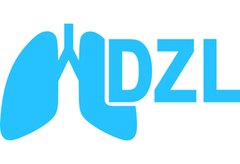2020-04-24
What is the impact of e-cigarettes on the lungs?

In a new project, scientists at the German Center for Lung Research (DZL) investigate the impact of e-cigarette vapor on lung health. This interdisciplinary approach combines projects of all five sites. The project is financed by the prize money of the International Balzan Prize Foundation and additional DZL funds. The DZL was awarded the Balzan Prize in November 2019 for its influential work in the field of pathophysiology of respiration.
The effects of e-cigarettes on lung health are largely unexplored. On the one hand, e-cigarettes are assumed to be less harmful than conventional cigarettes. On the other hand, the United States saw a series of severe lung injuries in the past year, some of which resulted in death. Our knowledge of the impact of e-cigarette smoking on the cell tissue of the lungs and airways is limited. Long-term effects are also unclear. Another factor of uncertainty is the large number of different additives. However, there is no doubt that the use of e-cigarettes is increasing substantially in the population.
For this reason, the DZL uses the prize money of the International Balzan Prize Foundation for an interdisciplinary project entitled “Effects of Short and Long Term Exposure to E-Cigarette Vapour” to study the effects of e-cigarettes on lung health. The research spectrum ranges from cell biology studies in animal models to the study of epidemiological databases. The research program involves three subprojects:
- Fruit flies are exposed to e-cigarette vapor. Will this change their lifespan? Can we notice physical changes in early development of the airways? Are genes read differently? Such questions can be well examined in this animal model. Fruit flies have a simple immune system, which responds to stress factors in a similar way as the innate immune system of mammals. Simple breeding of the flies allows us to obtain results in short time and test many substances.
- In a second subproject, mice treated with e-cigarette vapor are the key focus of investigation. Scientists study the impact on inflammatory processes of the lungs, lung function, and the vascular system in these animals. How do these mice handle infections? What happens if the lungs are exposed to conventional cigarette smoke for a long time at first and only after that to e-cigarette vapor? This experiment is supposed to answer the controversial question as to whether it is useful to use e-cigarettes for substitution and subsequent weaning.
- In epidemiological subprojects, the DZL scientists use data from the German National Cohort (NAKO). The fundamental question is: How many people of which ages use e-cigarettes how often? Are there any relations to chronic lung diseases such as COPD or asthma? Are there any changes of the airways, the lungs, or the cardiovascular system in magnetic resonance imaging (MRI) of e-cigarette users? NAKO is particularly suitable to answer these questions: With 200,000 participants, it represents a cross-section of society.
Over a period of three years, the persons involved expect important findings for better assessing the risks and dangers associated with e-cigarette use. The project is financed by the prize money of the Balzan Prize and additional DZL funds. The DZL was awarded the Balzan Prize in November 2019 for its outstanding achievements in the field of pathophysiology of respiration. The research project starting now is largely based on projects of young scientists, whom the DZL wants to particularly support this way.
Project title: “Effects of Short and Long Term Exposure to E-Cigarette Vapour”
Principal Investigators: Prof. Dr. med. Werner Seeger, Giessen; Prof. Dr. med. Hans-Ulrich Kauczor, Heidelberg; Prof. Dr. med. Klaus F. Rabe, Grosshansdorf; Prof. Dr. med. Erika von Mutius, Munich; Prof. Dr. med. Tobias Welte, Hannover
Co-Applicants (Research Group Leaders, Junior Investigators, and Post-Docs): Dr. rer. nat. Hanna Angstmann, Research Center Borstel; PD Dr. med. Sascha David, Hannover Medical School; Dr. med. Stefan Karrasch, Medical Center of the University of Munich; Dr. med. Claudius Melzig, Heidelberg University Hospital; PD Dr. med. Natascha Sommer, Giessen University (JLU); Prof. Dr. med. Susanne Krauss-Etschmann, Research Center Borstel
Further information: Announcement and awarding of the Balzan Prize.
/jbul
Calendar
Upcoming events
2024-04-30
Virtual DZL AID Kick-off Seminar
2024-05-29
74th Meeting of ARCN
2024-06-05
